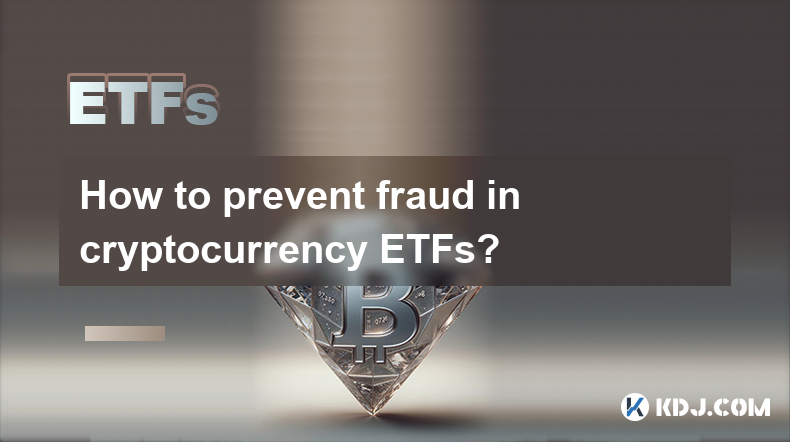-
 Bitcoin
Bitcoin $85,053.4987
0.47% -
 Ethereum
Ethereum $1,604.0688
1.50% -
 Tether USDt
Tether USDt $0.9997
-0.01% -
 XRP
XRP $2.0888
1.22% -
 BNB
BNB $593.1504
0.71% -
 Solana
Solana $138.4195
3.26% -
 USDC
USDC $0.9999
-0.01% -
 Dogecoin
Dogecoin $0.1597
3.11% -
 TRON
TRON $0.2415
-1.60% -
 Cardano
Cardano $0.6329
3.08% -
 UNUS SED LEO
UNUS SED LEO $9.2888
0.62% -
 Chainlink
Chainlink $12.7878
1.44% -
 Avalanche
Avalanche $19.2917
1.31% -
 Stellar
Stellar $0.2447
1.18% -
 Toncoin
Toncoin $3.0011
0.71% -
 Shiba Inu
Shiba Inu $0.0...01226
3.89% -
 Hedera
Hedera $0.1676
2.05% -
 Sui
Sui $2.1459
1.63% -
 Bitcoin Cash
Bitcoin Cash $337.7604
2.53% -
 Hyperliquid
Hyperliquid $17.6730
4.32% -
 Polkadot
Polkadot $3.7299
1.72% -
 Litecoin
Litecoin $76.5325
1.77% -
 Dai
Dai $0.9999
0.00% -
 Bitget Token
Bitget Token $4.4634
2.38% -
 Ethena USDe
Ethena USDe $0.9991
0.00% -
 Pi
Pi $0.6486
5.66% -
 Monero
Monero $212.3459
-1.60% -
 Uniswap
Uniswap $5.2591
1.62% -
 Pepe
Pepe $0.0...07316
3.79% -
 OKB
OKB $50.8354
2.04%
How to prevent fraud in cryptocurrency ETFs?
By implementing robust security protocols, conducting regular audits, and educating investors and advisors, cryptocurrency ETFs can enhance transparency, mitigate risks, and prevent fraud in the digital asset market.
Jan 04, 2025 at 05:32 pm

Key Points:
- Enhance Transparency and Due Diligence: Ensure thorough evaluations of investment strategies, underlying assets, and counterparties to minimize risk.
- Establish Robust Security Protocols: Implement rigorous cybersecurity measures, such as multi-factor authentication and cold storage, to safeguard assets against unauthorized access.
- Conduct Regular Audits and Reviews: Engage independent auditors and legal experts to regularly assess and validate the ETF's adherence to regulatory requirements and industry best practices.
- Educate Investors and Advisors: Provide comprehensive educational materials and training to investors and advisors to enhance their understanding of cryptocurrency ETFs and associated risks.
- Foster Collaboration and Information Sharing: Establish channels for sharing information and resources with law enforcement agencies, regulators, and other industry participants to combat fraud.
- Implement Anti-Money Laundering and Know-Your-Customer (AML/KYC) Measures: Strictly adhere to AML/KYC guidelines to prevent illicit activities and identify potentially suspicious transactions.
- Monitor Market Activity and Sentiment: Utilize advanced analytical tools and algorithms to monitor trading patterns, social media sentiment, and news headlines to identify potential red flags.
- Stay Informed and Adapt to Evolving Fraud Tactics: Continuously monitor emerging fraud trends and adjust countermeasures to ensure ongoing protection against sophisticated threats.
- Provide Transparent and Accessible Reporting: Establish clear and accessible reporting mechanisms for investors to easily access information about portfolio holdings, expenses, and other relevant disclosures.
- Consider Insurance Coverage: Explore options for insurance coverage to mitigate potential losses in the event of fraud or other unforeseen events.
How to Prevent Fraud in Cryptocurrency ETFs
1. Enhance Transparency and Due Diligence
Conducting thorough due diligence and maintaining transparency are crucial to preventing fraud in cryptocurrency ETFs. This involves carefully evaluating the investment strategies, underlying assets, and counterparties involved in the ETF. Fund managers should provide detailed prospectuses and disclosures that outline the ETF's objectives, portfolio composition, and risk factors.
Additionally, independent research and analysis of the ETF's holdings, trading volume, and performance can help investors make informed decisions. Fund managers should be open to scrutiny and provide regular updates and communication with investors.
2. Establish Robust Security Protocols
Robust cybersecurity measures are essential to safeguarding cryptocurrency ETF assets from unauthorized access and theft. These measures may include multi-factor authentication, hardware security keys, cold storage for offline asset保管, and regular security audits.
Fund managers should also implement stringent access controls and segregation of duties to prevent internal fraud and compromise. The use of encryption and distributed ledger technology can further enhance the security and integrity of ETF assets.
3. Conduct Regular Audits and Reviews
Engaging independent auditors and legal experts to regularly review the ETF's operations and compliance with regulatory requirements is critical to preventing fraud. Audits should assess the fund's financial statements, investment processes, and adherence to internal controls.
Legal reviews can ensure that the ETF complies with all applicable laws and regulations, including those governing the custody, trading, and reporting of cryptocurrency assets.
4. Educate Investors and Advisors
Educating investors and advisors about cryptocurrency ETFs and associated risks is key to preventing fraud. Fund managers should develop comprehensive educational materials and training programs that explain the underlying technology, market dynamics, and potential benefits and risks involved.
This education can help investors make informed decisions and identify potential red flags that may indicate fraudulent activity. Advisors play a crucial role in guiding their clients and ensuring they fully understand the nature and risks of specific cryptocurrency ETF products.
5. Foster Collaboration and Information Sharing
Establishing channels for sharing information and resources with law enforcement agencies, regulators, and other industry participants is essential to combating fraud. This collaboration can facilitate investigations, identify emerging fraud trends, and develop collective responses to mitigate risks.
Collaboration can also involve participating in industry working groups, attending conferences, and leveraging social media to share knowledge and insights.
6. Implement Anti-Money Laundering and Know-Your-Customer (AML/KYC) Measures
Strict adherence to AML/KYC guidelines is crucial to preventing the use of cryptocurrency ETFs for illicit activities. Fund managers should implement robust procedures for verifying the identities of their clients, monitoring transaction activity, and reporting suspicious activities to regulatory authorities.
These measures help prevent money laundering, terrorist financing, and other financial crimes by identifying and reporting individuals and entities engaged in suspicious transactions or financial misconduct.
7. Monitor Market Activity and Sentiment
Utilizing advanced analytical tools and algorithms to monitor trading patterns, social media sentiment, and news headlines can help identify potential red flags that may indicate fraudulent activity. Unusual trading volumes, price spikes, or negative sentiment can be early warning signs of potential fraud.
Fund managers and regulators can establish surveillance systems that monitor these indicators and trigger alerts for further investigation.
8. Stay Informed and Adapt to Evolving Fraud Tactics
The landscape of fraud tactics is constantly evolving, and it is crucial to stay informed about emerging trends and adjust countermeasures accordingly. Fund managers, regulators, and law enforcement agencies should engage in ongoing research and collaboration to identify new fraud schemes and develop effective strategies to combat them.
This can involve attending conferences, participating in working groups, and leveraging data analytics to identify patterns and vulnerabilities that may lead to fraudulent activities.
9. Provide Transparent and Accessible Reporting
Establish clear and accessible reporting mechanisms for investors to easily access information about portfolio holdings, expenses, and other relevant disclosures. Regular reports and updates can help investors monitor the ETF's performance, make informed decisions, and hold fund managers accountable.
Reporting should be presented in a user-friendly and understandable format, allowing investors to comprehend the ETF's risk profile, performance history, and any changes or variations in the underlying assets or investment strategies.
10. Consider Insurance Coverage
Exploring options for insurance coverage can help mitigate potential losses in the event of fraud or other unforeseen events. Insurance policies can cover losses due to theft, hacking, or other malicious acts.
Fund managers should carefully review insurance policies and choose coverage that aligns with the specific risks and exposure of their ETF. Insurance can provide an additional layer of protection and peace of mind for investors and fund managers alike.
FAQs
Q: What are some common types of fraud in cryptocurrency ETFs?
A: Fraud in cryptocurrency ETFs can take various forms, including:
- Misrepresentation of the ETF's investment strategy or underlying assets
- Theft or misappropriation of ETF assets
- Manipulation of the ETF's price or trading volume
- Ponzi schemes or other fraudulent activities involving the issuance or redemption of ETF shares
Q: What are the red flags that may indicate potential fraud in cryptocurrency ETFs?
A: Potential red flags include:
- Unusually high returns or promises of guaranteed profits
- Complex or opaque investment strategies that are difficult to understand or verify
- Lack of transparency or disclosure of information about the ETF's operations or holdings
- Sudden spikes or drops in the ETF's price that cannot be explained by market conditions
- Negative sentiment or concerns expressed by investors or industry experts
Q: What should I do if I suspect fraud in a cryptocurrency ETF?
A: If you suspect fraud, you should:
- Contact the fund manager directly to report your concerns and request further information
- Notify your broker or financial advisor
- File a complaint with the relevant regulatory agency or law enforcement authorities
- Gather evidence to support your allegations, such as trading statements, correspondence, or other documents
- Be prepared to cooperate with investigations and provide any information or assistance requested by authorities
Q: How can I protect myself from fraud in cryptocurrency ETFs?
A: To protect yourself, you should:
- Invest only in ETFs from reputable and established fund managers with a proven track record
- Carefully review the ETF's prospectus and disclosures before investing
- Monitor your investment and be aware of any unusual activity or changes in the ETF's performance or value
- Consider working with a financial advisor who can guide you in making informed investment decisions
- Use trusted sources of information and stay informed about potential fraud trends and red flags
Disclaimer:info@kdj.com
The information provided is not trading advice. kdj.com does not assume any responsibility for any investments made based on the information provided in this article. Cryptocurrencies are highly volatile and it is highly recommended that you invest with caution after thorough research!
If you believe that the content used on this website infringes your copyright, please contact us immediately (info@kdj.com) and we will delete it promptly.
- Ripple's XRP price has held on well despite recent market volatility
- 2025-04-19 13:20:13
- With a SHIB burn of nearly 28 billion tokens in a day
- 2025-04-19 13:20:13
- Bitcoin's value has transformed dramatically since its creation, rising from $0.08 in 2010 to an all-time high of $69,000 in 2021.
- 2025-04-19 13:15:13
- Ethereum Whales Have Been Accumulating ETH at a Stash Rate, Pointing to an Impending Price Rally
- 2025-04-19 13:15:13
- This weekend's best sweepstakes casino promos include our favorite providers
- 2025-04-19 13:10:13
- A volatile trading session looms as $2.02 billion in Bitcoin [BTC] options and $280 million in Ethereum [ETH] options are set to expire today.
- 2025-04-19 13:10:13
Related knowledge

What role does SEC play in Bitcoin ETF approval?
Feb 25,2025 at 06:48am
Key Points:SEC's Role in Bitcoin ETF Approval ProcessHistorical Efforts to Establish a Bitcoin ETFSEC's Criteria for Bitcoin ETF ApprovalPotential Impact of a Bitcoin ETF on the Cryptocurrency MarketTimeline and Outlook for Bitcoin ETF ApprovalArticle:SEC Play in Bitcoin ETF ApprovalThe United States Securities and Exchange Commission (SEC) plays a crit...

Who is eligible to issue Bitcoin ETFs?
Feb 25,2025 at 11:13am
Key Points:Only regulated financial institutions with the necessary expertise and infrastructure are eligible to issue Bitcoin ETFs.The Securities and Exchange Commission (SEC) has not yet approved any spot Bitcoin ETFs, but has approved several futures-based ETFs.Applicants must meet stringent requirements, including having a strong track record and su...

What impact does Bitcoin ETF have on the market?
Feb 25,2025 at 11:37am
Key Points:Introduction to Bitcoin ETFs and their role in the cryptocurrency marketHistorical development and performance of Bitcoin ETFsPotential benefits of Bitcoin ETFs for investors and the marketRisks and limitations associated with Bitcoin ETFsRegulatory considerations and their impact on Bitcoin ETFsArticle:Introduction to Bitcoin ETFsBitcoin exc...

Which investors are Bitcoin ETFs suitable for?
Feb 27,2025 at 04:01pm
Key Points:Understanding Bitcoin ETFsBenefits of Bitcoin ETFsSuitability of Bitcoin ETFs for Different InvestorsAssessing Risk Tolerance and Investment GoalsConsidering Short-Term and Long-Term StrategiesExamining Tax ImplicationsSeeking Professional AdviceUnderstanding Bitcoin ETFsBitcoin exchange-traded funds (ETFs) are investment vehicles that track ...

What is the administrative expenses of Bitcoin ETFs?
Feb 26,2025 at 12:24am
Key Points:Administrative expenses are a crucial factor to consider when evaluating Bitcoin ETFs.These expenses can significantly impact the performance of the fund and ultimately the investor's returns.Understanding the various components of administrative expenses is essential for informed decision-making.Comparing administrative expenses across diffe...

What are the fees for purchasing Bitcoin ETFs?
Feb 27,2025 at 07:13pm
Key Points:Bitcoin exchange-traded funds (ETFs) are a cost-effective and regulated way to gain exposure to Bitcoin.Fees associated with Bitcoin ETF purchases vary depending on the platform, trading volume, and account type.It is essential to evaluate fee structures carefully to optimize investment returns.Fees Associated with Purchasing Bitcoin ETFs1. B...

What role does SEC play in Bitcoin ETF approval?
Feb 25,2025 at 06:48am
Key Points:SEC's Role in Bitcoin ETF Approval ProcessHistorical Efforts to Establish a Bitcoin ETFSEC's Criteria for Bitcoin ETF ApprovalPotential Impact of a Bitcoin ETF on the Cryptocurrency MarketTimeline and Outlook for Bitcoin ETF ApprovalArticle:SEC Play in Bitcoin ETF ApprovalThe United States Securities and Exchange Commission (SEC) plays a crit...

Who is eligible to issue Bitcoin ETFs?
Feb 25,2025 at 11:13am
Key Points:Only regulated financial institutions with the necessary expertise and infrastructure are eligible to issue Bitcoin ETFs.The Securities and Exchange Commission (SEC) has not yet approved any spot Bitcoin ETFs, but has approved several futures-based ETFs.Applicants must meet stringent requirements, including having a strong track record and su...

What impact does Bitcoin ETF have on the market?
Feb 25,2025 at 11:37am
Key Points:Introduction to Bitcoin ETFs and their role in the cryptocurrency marketHistorical development and performance of Bitcoin ETFsPotential benefits of Bitcoin ETFs for investors and the marketRisks and limitations associated with Bitcoin ETFsRegulatory considerations and their impact on Bitcoin ETFsArticle:Introduction to Bitcoin ETFsBitcoin exc...

Which investors are Bitcoin ETFs suitable for?
Feb 27,2025 at 04:01pm
Key Points:Understanding Bitcoin ETFsBenefits of Bitcoin ETFsSuitability of Bitcoin ETFs for Different InvestorsAssessing Risk Tolerance and Investment GoalsConsidering Short-Term and Long-Term StrategiesExamining Tax ImplicationsSeeking Professional AdviceUnderstanding Bitcoin ETFsBitcoin exchange-traded funds (ETFs) are investment vehicles that track ...

What is the administrative expenses of Bitcoin ETFs?
Feb 26,2025 at 12:24am
Key Points:Administrative expenses are a crucial factor to consider when evaluating Bitcoin ETFs.These expenses can significantly impact the performance of the fund and ultimately the investor's returns.Understanding the various components of administrative expenses is essential for informed decision-making.Comparing administrative expenses across diffe...

What are the fees for purchasing Bitcoin ETFs?
Feb 27,2025 at 07:13pm
Key Points:Bitcoin exchange-traded funds (ETFs) are a cost-effective and regulated way to gain exposure to Bitcoin.Fees associated with Bitcoin ETF purchases vary depending on the platform, trading volume, and account type.It is essential to evaluate fee structures carefully to optimize investment returns.Fees Associated with Purchasing Bitcoin ETFs1. B...
See all articles
























































































